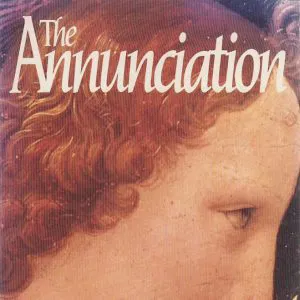calsfoundation@cals.org
Ellen Gilchrist (1935–2024)
Winner of the 1984 National Book Award for Fiction for her collection of short stories, Victory Over Japan, Ellen Gilchrist was declared “a national treasure” by the Washington Post for her various works. She received numerous other awards for her work, as well as a National Endowment for the Arts Grant in Fiction. A Mississippi native, she lived in Fayetteville (Washington County) for most of her writing career and was, for many years, a faculty member at the University of Arkansas (UA) in Fayetteville.
Gilchrist was born on February 20, 1935, near Vicksburg, Mississippi, the second child and only daughter of Aurora Alford Gilchrist and William Garth Gilchrist. Much of her young life was spent moving across the South and Midwest as her father, an engineer, followed work. Among the places where she spent her youth were Hopedale Plantation in Issaquena County, Mississippi, and Courtland, Alabama.
She attended Vanderbilt University in Nashville, Tennessee, where she earned a BA in philosophy and where she, at age nineteen, married Marshall Walker, an engineering student; they had three children. She divorced Walker (whom she later remarried and re-divorced, in addition to marrying and divorcing two other men before her writing career took off) and went on to earn another BA in 1967 from Millsaps College in Jackson, Mississippi; there, she studied under famed Mississippi writer Eudora Welty. After doing some postgraduate work in creative writing at UA, mentored in particular by Jim Whitehead, she undertook various writing and journalism jobs and served as a contributing editor for New Orleans’s Vieux Carre Courier from 1976 until 1979, when her first book of poetry, The Land Surveyor’s Daughter, was published by Lost Roads Publishers, founded by poet Frank Stanford, whom Gilchrist credited with helping to polish and refine her work. (However, the book was released after Stanford’s 1978 suicide, and poet C. D. Wright, then managing the press, removed two poems and altered others, leading Gilchrist to self-publish a revised edition, restoring the original work, in 1980.)
It was with a collection of short stories, however, that Gilchrist would make her reputation. The Land of Dreamy Dreams (1981) sold more than 10,000 copies in its first ten months and attracted tremendous critical acclaim, a minor coup for her publisher, the newly established University of Arkansas Press; in fact, Gilchrist had made the conscious decision to have her book published by UA Press rather than a commercial publisher. This success secured the writer a two-book contract with Little, Brown and Company. Her first novel, The Annunciation, received mixed reviews. The following year, Gilchrist published her award-winning Victory Over Japan and began a one-year stint as a commentator on National Public Radio’s Morning Edition. Her commentaries were published in 1987 as Falling Through Space: The Journals of Ellen Gilchrist.
While her individual works stand alone, certain characters reappear in her books in different phases of their lives, forming one large interconnected body of fiction. The only fictional work of Gilchrist not a part of this body is Anabasis, a Journey to the Interior (1994), a historical novel set in ancient Greece, though that work retains some thematic similarities to her others in its focus on a strong female character who exhibits a positive self-image.
For most of her writing career, Gilchrist made Fayetteville her home, though she still maintained a house in Ocean Springs, Mississippi. For many of the years Gilchrist resided in Fayetteville, she lived in a house designed by noted architect Fay Jones.
Among her other well-known works are The Anna Papers (1988), Net of Jewels (1992), The Age of Miracles (1995), and I, Rhoda Manning, Go Hunting with My Daddy, and other Stories (2002). In 2000, she was a visiting professor at UA, and in 2001, she joined the faculty as an associate professor of creative writing. Drawing from this experience, she wrote a memoir, The Writing Life (2005), in which she discussed overcoming alcoholism, the challenges of teaching students the art of writing, and balancing artistic pursuits with family life. In 2008, she published the novel A Dangerous Age. This was followed up in 2014 with Acts of God, a collection of short stories, and an autobiographical collection of essays, Things Like the Truth: Out of My Later Years, in 2016.
Gilchrist died on January 31, 2024, in Ocean Springs, where she had relocated permanently after retiring from UA.
For additional information:
Bain, Robert. “Ellen Gilchrist.” In Contemporary Fiction Writers of the South: A Bio-Bibliographical Sourcebook, edited by Joseph M. Flora and Robert Bain. Westport, CT: Greenwood Publishing Group, 1993.
Bauer, Margaret Donovan. “Ellen Gilchrist’s Women Who Would Be Queens (and Those Who Would Dethrone Them).” Mississippi Quarterly 55 (Winter 2001–2002): 117–131.
———. The Fiction of Ellen Gilchrist. Gainesville: University Press of Florida, 1999.
Bowden, Bill. “Author, Former UA Instructor Ellen Gilchrist Dies at 88.” Arkansas Democrat-Gazette, February 1, 2024, pp. 1B, 4B. Online at https://www.arkansasonline.com/news/2024/jan/31/author-ex-ua-instructor-ellen-gilchrist-dies-at-88/ (accessed February 1, 2024).
Carr, Tracy, ed. Conversations with Ellen Gilchrist. Jackson: University Press of Mississippi, 2025.
Gilchrist, Ellen. “Keeping Houses.” Oprah.com. https://www.oprah.com/oathome/novelist-ellen-gilchrists-two-homes (accessed August 5, 2024).
———. Things Like the Truth: Out of My Later Years. Jackson: University Press of Mississippi, 2016.
———. The Writing Life. Jackson: University Press of Mississippi, 2005.
Ellen Gilchrist Interview. Arkansas Memories Project. David and Barbara Pryor Center for Arkansas Oral and Visual History. University of Arkansas, Fayetteville, Arkansas. Online at https://pryorcenter.uark.edu/interview.php?thisProject=Arkansas Memories&thisProfileURL=GILCHRIST-Ellen&displayName=Ellen Gilchrist (accessed February 13, 2025).
Ellen Gilchrist Materials. Special Collections. University of Arkansas Libraries, Fayetteville, Arkansas. Finding aid online at https://uark.as.atlas-sys.com/repositories/2/resources/547 (accessed February 13, 2025).
Hooper, Brad. The Fiction of Ellen Gilchrist: An Appreciation. Westport, CT: Praeger, 2005.
McCay, Mary A. Ellen Gilchrist. New York: Twayne, 1997.
McWilliams, James. “Ellen Gilchrist’s Real Man: A Visit with the Iconoclastic Author.” Oxford American, Fall 2024, pp. 82–84, 86, 88. Online at https://oxfordamerican.org/magazine/issue-126-fall-2024/ellen-gilchrist-s-real-man (accessed September 11, 2025).
Nossiter, Adam. “Ellen Gilchrist, Writer with an Eye on the South’s Foibles, Dies at 88.” New York Times, February 11, 2024. https://www.nytimes.com/2024/02/11/books/ellen-gilchrist-dead.html (accessed August 19, 2024).
Staff of the CALS Encyclopedia of Arkansas











Comments
No comments on this entry yet.